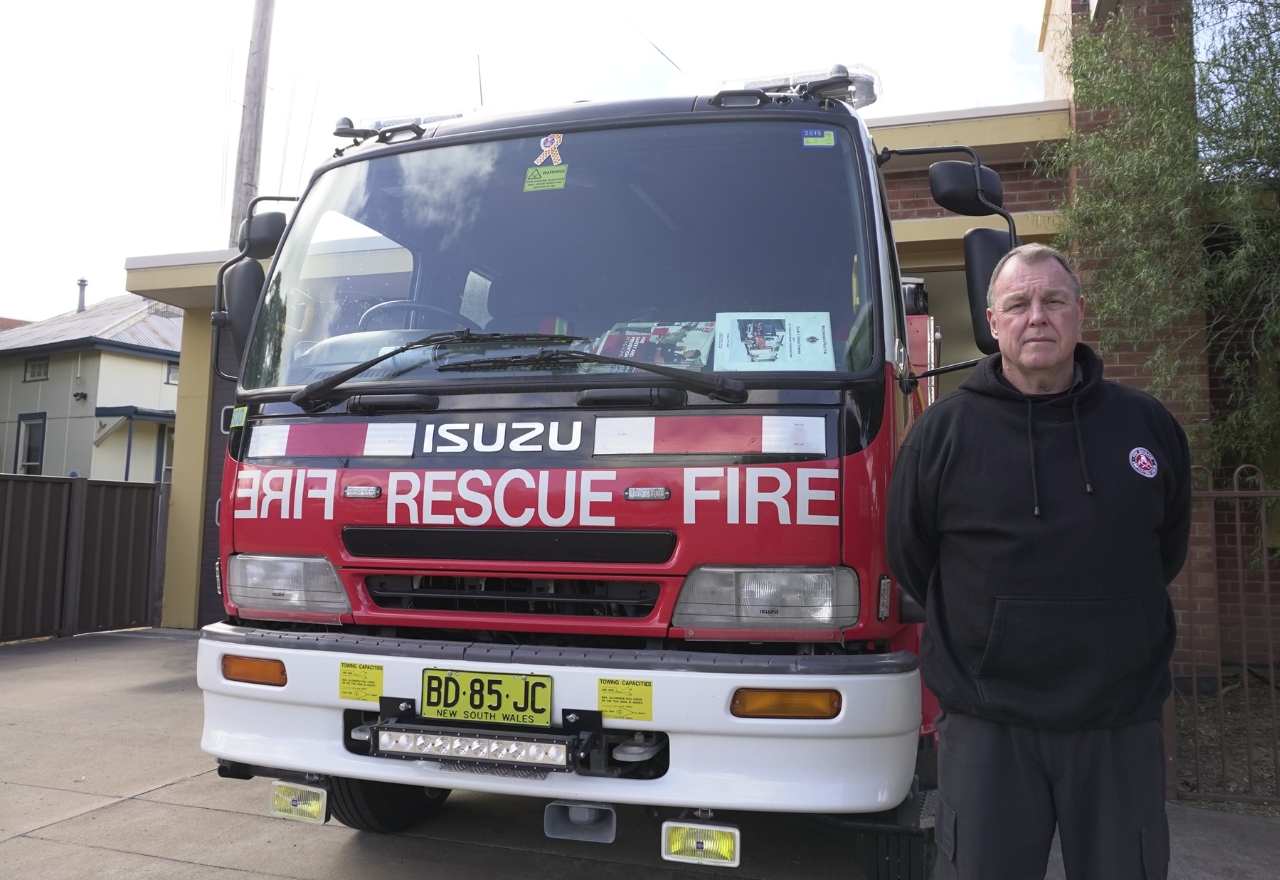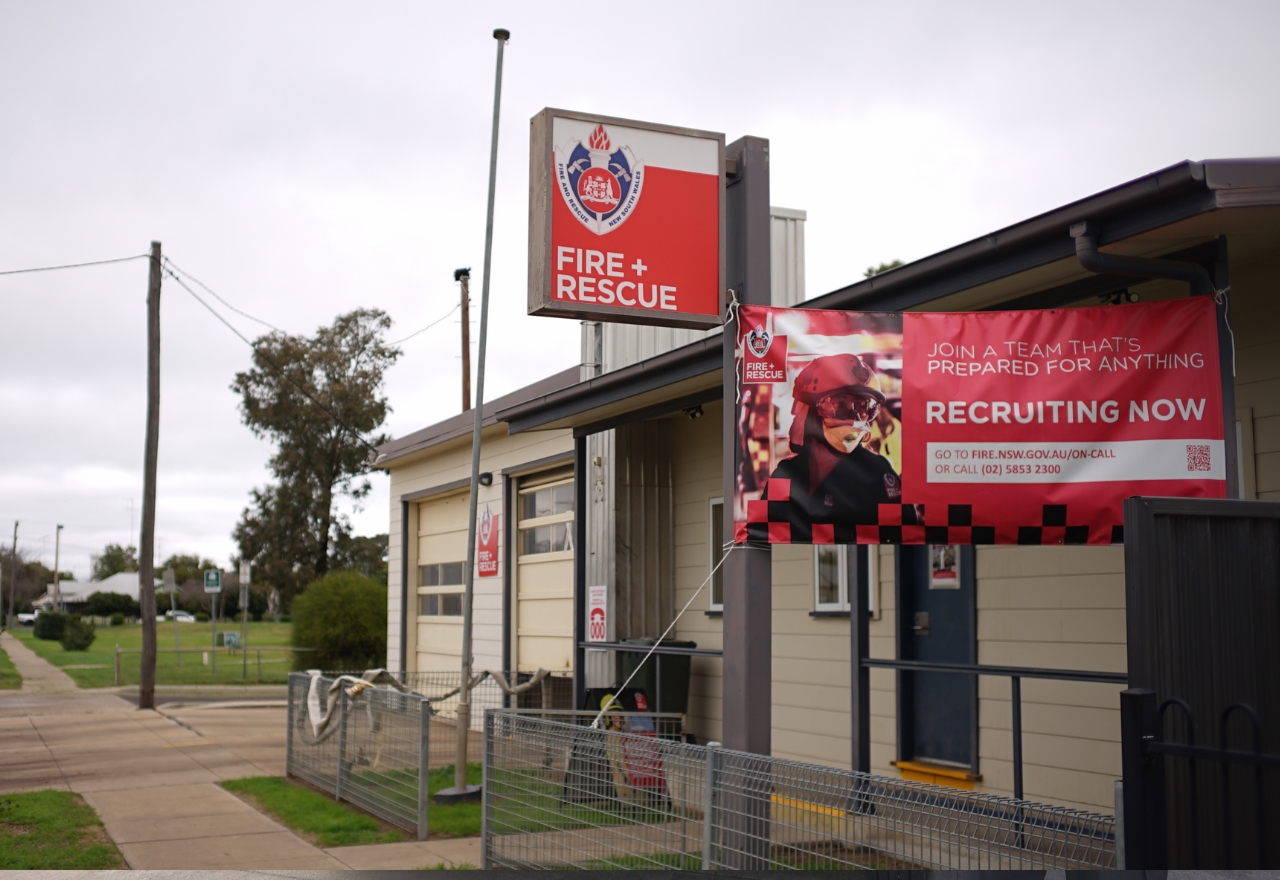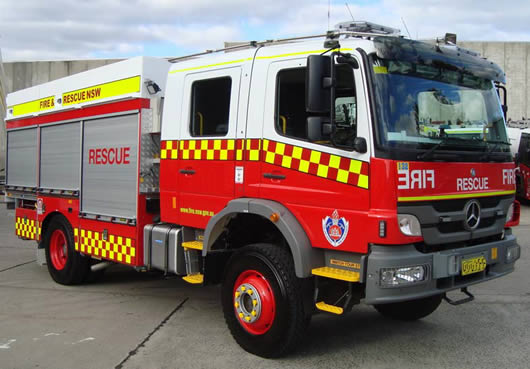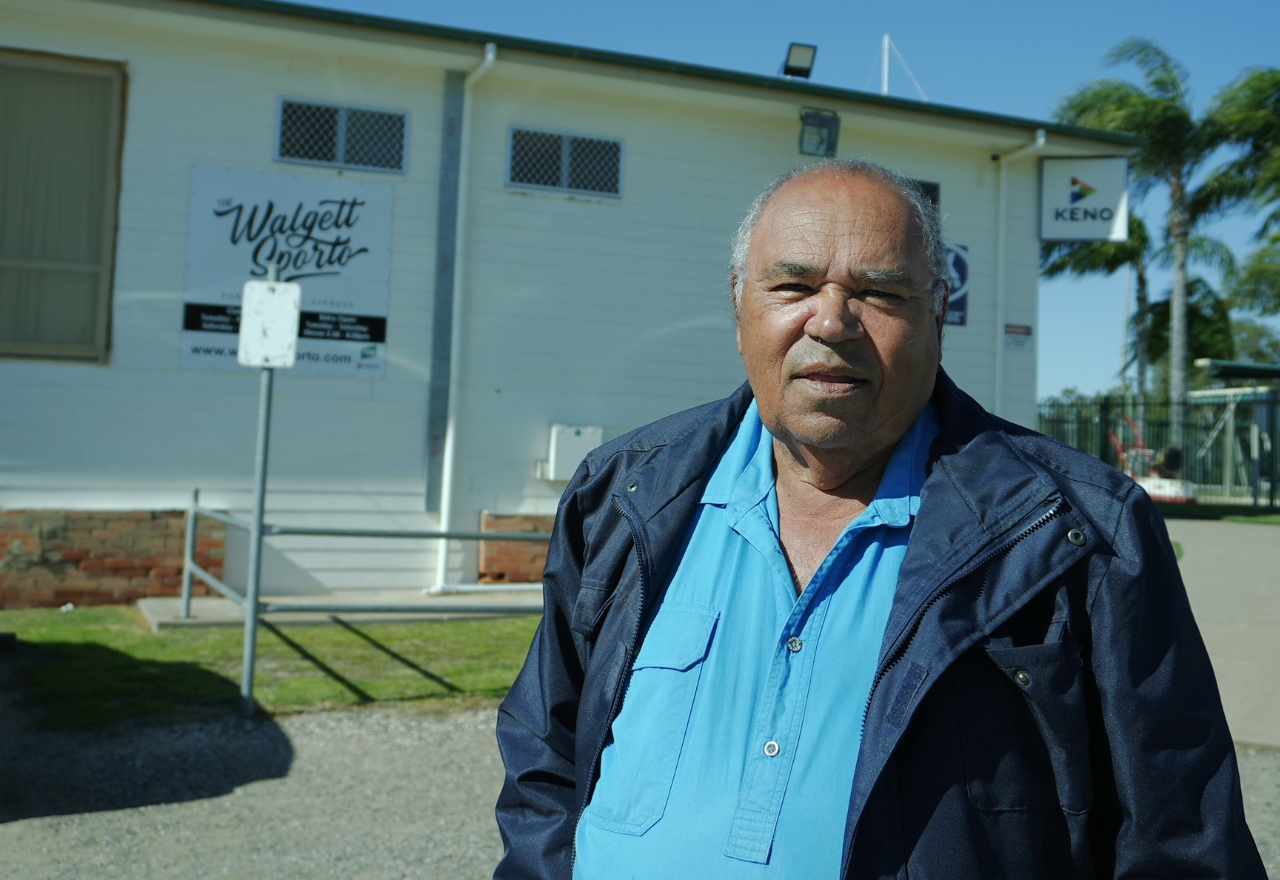Debate ignites over fire engine replacements
River McCrossen
07 July 2025, 9:20 PM
 Fire Brigade Employees Union representative Tim Anderson, pictured in Coonamble on 7 July, says Fire and Rescue NSW's proposal to swap out a pumper fire engine at Walgett would make the job more dangerous for firefighters. IMAGE: River McCrossen
Fire Brigade Employees Union representative Tim Anderson, pictured in Coonamble on 7 July, says Fire and Rescue NSW's proposal to swap out a pumper fire engine at Walgett would make the job more dangerous for firefighters. IMAGE: River McCrossen Firefighters in Walgett Shire say they fear lives could be at risk with a proposed swap-out of fire trucks meaning fewer firefighters for the district.
Walgett is just one town where Fire and Rescue NSW (FRNSW) is proposing to replace four-person 'pumpers' with tankers requiring only two operators.
Others in the western plains area are set to follow.
Agency officials say the move will help tackle staff shortages and save costs, although local firefighters told the Western Plains App it would likely lead to a dip in service quality.
"Normally when you have a road crash, you have someone on fire protection, so someone's standing there ready with the hose just in case," one crew member said.
"Then you have two people if you have to cut people out and use the jaws of life (rescue tool), and then a third person as a runner.
"I don't really understand how they're going to do that if there's only two of us."
Firefighters said that their operating procedure requires a four-person crew to enter a burning house and physically remove an occupant - two to go in and two as a safety net in case something goes wrong.

Walgett's Fire and Rescue station. IMAGE: River McCrossen
The pressure of the water flowing out the hose affects how effective the stream is at putting out a fire, and tankers generally apply have pressure than pumpers.
The firefighters said the loss of the Walgett pumper would draw resources away from surrounding stations if the tankers can't handle an incident in town.
Walgett, Bingara, Dungog are three initial stations which would lose their Class 2 pumpers, followed by a further seven areas including Warren.
The pumpers are generally used as rescue vehicles able to spray 3000 litres a minute, while the the Class 1 tankers that would replace them can pump half that amount but carry more water.
"The tanker's kind of like the ugly sister. It will do the job, but when the pressure's on, it may fail," one firefighter said.
"The pumper allows us to provide enough water pressure to combat any structure fire within the Walgett township. Our tanker's capability is slightly lower.
"They're similar, but different enough to be a significant point of difference between the two appliances."

A Class 1 Fire and Rescue tanker. IMAGE: FRNSW
The Western Plains App understands that local branch members will discuss the proposal with RFNSW Cheif Superintendent David Felton during a Walgett visit on 8 July.
Stations were selected for the tanker project based on factors including low call-out rates and low recruitment, with Peak Hill being one of the first stations to take up the change in 2019.
A firefighter at that station said the crew "reluctantly" accepted their tanker to keep the station running, although they also said the service quality declined.
"There's a lot of things that you can't really do with two people that you should be able to do to complete our job, I'd say, efficiently," the Peak Hill firefighter said.
An FRNSW spokesperson said they are "improving the way resources are managed and enhancing the emergency response in regional communities by introducing more efficient trucks into service."
“These trucks carry more water and handle rough terrain better than currently used urban fire trucks," the spokesperson said.
“FRNSW is consulting with the Fire Brigade Employees Union (FBEU), local government, and other emergency service agencies ahead of these trucks entering service.”
The replacing tanker is expected to arrive in Walgett within a couple of months and be able to respond over rough terrain to bushfires, structure fires and flood emergencies.
The FBEU's Country Sub-Branch representative Tim Anderson called the project "a budget cutting exercise."
"Potentially halving the number of firefighters that are attending an incident will only make it more dangerous for those firefighters," Mr Anderson said.
"Rather than withdrawing from these communities, we should be investing."



